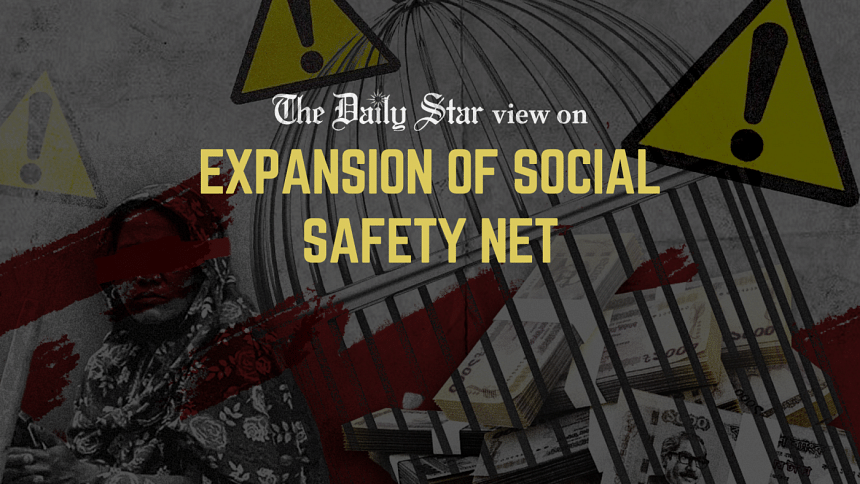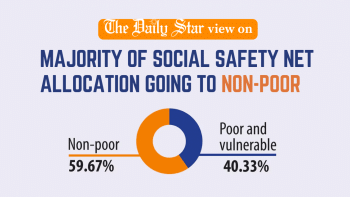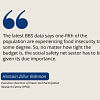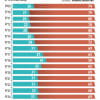Social safety schemes must serve the vulnerable

We appreciate any form of expansion in social security, and needless to say, the government's decision to increase the number of beneficiaries under its social safety net programmes is commendable. Reportedly, the government has decided to increase the number of beneficiaries in two major schemes—the old age allowance, and the allowance for widows, deserted, or destitute women. However, the allocated stipend per individual remains the same—Tk 600 per month for the elderly, and Tk 550 per month for the other group—apparently due to budget constraints. Such a meagre amount cannot sustain an individual throughout a week, let alone a month, in the worst cost of living crisis in the country in over a decade.
On paper, the budget allocated for social security for the current fiscal year is fairly sizable—Tk 1,26,272 crore, or 2.52 percent of the country's total GDP, though still falling short of the recommended 3 percent. However, the government includes several unconventional items in its social safety net budget—pensions for retired government employees and their families, interest payments for national savings certificates, agriculture subsidies, interest subsidies for SMEs, and allocation for health risk and natural shock management. Out of a total budget of Tk 1,26,272 crore, Tk 43,389 crore is allocated for social allowances to 13.86 million people. Notably, Tk 27,414 crore (63 percent) of this allowance goes to just 5.77 percent of beneficiaries (800,000 retired government employees). In reality, only around 1 percent of the GDP reaches the actual vulnerable groups. There is also a stark urban-rural divide.
On top of that, there are widespread practices of both wrongful exclusions and inclusions—mostly because of corruption and biases in recipient selection, especially by rural chairmen and members of the Union Parishads who prioritise potential voters and family ties, according to a recent Planning Commission report.
It is commendable that the finance ministry has ordered all ministries concerned to submit reports on the list of beneficiaries and goals of the programme by April 30, and we hope that necessary actions will be followed. However, we also recommend more targeted social support schemes for those truly in need and increasing the amount allotted to each individual. We also urge the government to consider developing a social insurance system to be included in social security planning to provide financial support during life events like illness, retirement, or job loss to ease the financial burden on vulnerable individuals and families.


 For all latest news, follow The Daily Star's Google News channel.
For all latest news, follow The Daily Star's Google News channel. 









Comments